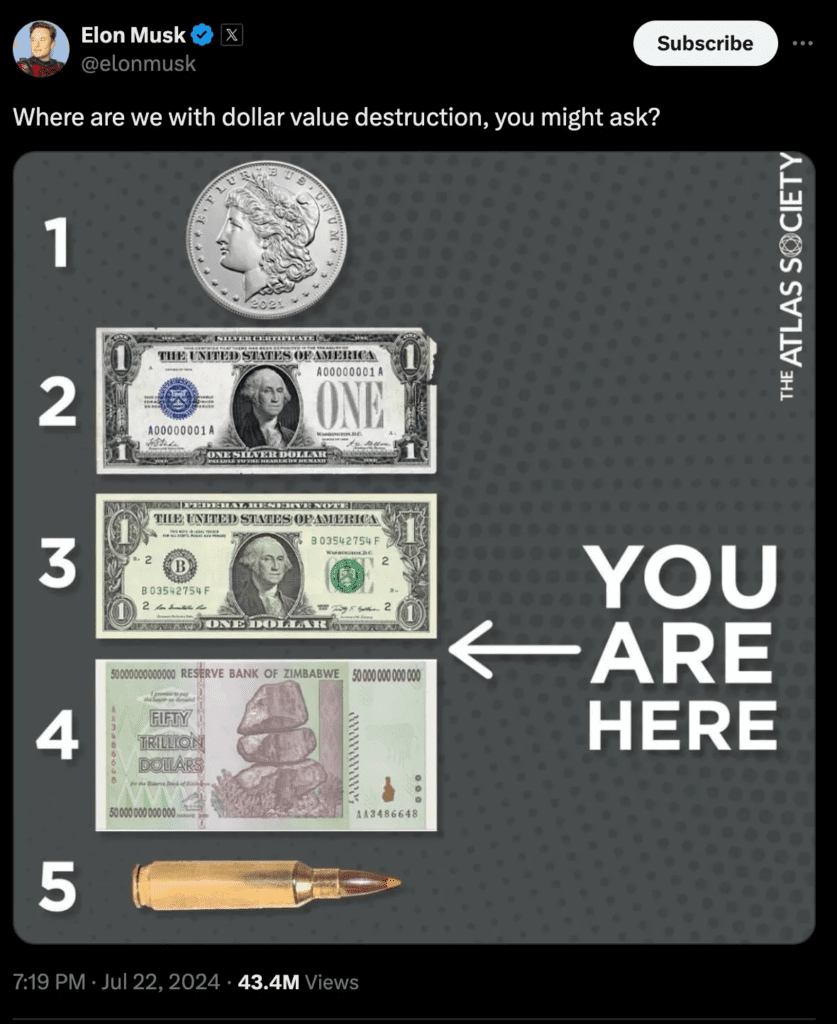Elon Musk sounds alarm on US debt crisis: “Just Another FYI That Government Spending is Driving America Bankrupt”.

Elon Musk keeps tweeting that he is worried about the US economy, and he is doing it more and more frequently. The CEO of Tesla and SpaceX, voiced his concerns about the United States’ escalating national debt and its potential ramifications for the country’s economic future. Musk’s comments were sparked by a discussion on X, formerly known as Twitter, where he responded to Billy Markus, co-founder of Dogecoin, emphasizing that the country was “going bankrupt.”
Musk pointed out another tuit that says since January 2020, the US national debt has ballooned by 50%, soaring from $23 trillion to $35 trillion. He also highlighted the alarming rise in interest rates, which have recently averaged around 5%. As a result, interest payments on the debt are projected to hit $1.5 trillion next year, consuming about 30% of all government revenue collected.
A particularly striking point made by Musk was the comparison between interest payments on the national debt and national defense spending. He noted that interest payments now exceed the budget allocated for national defense, underscoring the severity of the fiscal situation.
The Tesla and SpaceX CEO also shared an image illustrating the rapid devaluation of the US dollar, attributing this trend to US foreign policy and its adverse effects on developing economies. Moreover, Musk criticized the inconsistency of US fiscal policy, stating that “76% of income taxes are used for interest on past governmental incompetence.”

Musk’s warning has resonated with other influential figures in the financial sector. Jamie Dimon, CEO of JPMorgan Chase, has echoed similar concerns regarding the country’s economic stability. These comments come at a time when the Federal Reserve has kept interest rates high in a bid to combat inflation, with no clear indications of a shift in policy.
Economists remain divided on whether the growing debt poses a serious threat to economic stability or if it can be managed through economic growth. The political debate continues to revolve around whether the solution lies in cutting spending or increasing taxes to address the burgeoning debt.
Musk’s stark warning has added a new dimension to the ongoing discussions about the US economy’s future. With interest payments on the debt projected to take up a substantial portion of government revenue, the conversation about fiscal responsibility and economic sustainability is more urgent than ever.
